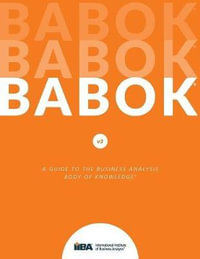
Handbook of Research on the Learning Organization
Adaptation and Context
By: Anders OErtenblad (Editor)
Paperback | 30 October 2015
At a Glance
Paperback
$161.75
Aims to ship in 15 to 25 business days
When will this arrive by?
Enter delivery postcode to estimate
In contrast to much of the previous literature, which has approached the learning organization as a panacea that every organization could and should adopt, this major new Handbook puts the learning organization into context. It examines the relevance of the learning organization idea to organizations in various specific contexts, employing examples from a wide variety of cultures including China and Islamic nations, and from industries as diverse as the police force, care services for the elderly and family firms.
Scholars and students with an interest in organizational learning will find this important Handbook enriching. Human resource practitioners will also find plenty of invaluable information in this resource.
Contributors: C. Abrahamson Loefstroem, A. Ahmad, M. Babur, Y. Baruch, N. Birdthistle, D.A. Blackman, C. Blantern, P. Bogolyubov, T. Boydell, H.T.M. Bui, J. Burgoyne, X. Cong, D.J. Delgado-Hernandez, M. Drobnjak, M. Easterby-Smith, Z. Fan, C. Filstad, T.N. Garavan, P. Gottschalk, J.F.L. Hong, S.-w. Hsu, D. Jamali, B. Li, Z. Li, M. Lin, C. Lloyd, D. McDowall, A. OErtenblad, C. Peng, Y. Sidani, R.S. Snell, C. Stothard, S. Talbot, M. Torokoff-Engelbrecht, K.E. Watkins, D. Weir, J. Zhou
Industry Reviews
'OErtenblad offers a contingency framework differentiating the idea of the learning organization as portrayed in research and practice to shed light on context as key to the idea's relevance. The contingency framework anchors chapter authors' interrogation into adaptation of enduring, underlying principles by divergent context-in industry, sector, national culture, religious orientation, and philosophical underpinnings. Readers will value analysis and synthesis of what is known from research as well as informed probing of what could be learned through the lens of provocative viewpoints. Scholars will appreciate OErtenblad's assessment of extant research and arguments made for "researcher-assisted adaptation" to balance rigid prescriptions with informed guidance in navigating contextual differences when deciding to enact the learning organization.' -- Victoria J. Marsick, Columbia University, US
'The Handbookis a very well researched and excellent tool for anyone interested in the concept of learning, and particularly in the global organizational context. I highly recommend this book to managers of companies both large and small wanting to compete in the global landscape by highlighting the important learning that occurs in their organizations.' -- Vanessa Ratten, Thunderbird International Business Review
'This handbook has moved the field of learning organization research forward considerably. It has paved the way for future research by providing a more nuanced conceptual framework than hitherto existed. This framework will make it easier for future studies to compare findings and contribute to a contingency framework of the learning organization concept. Moreover, the book also offers new, alternative perspectives on the learning organization which, if implemented in practice, may stimulate more innovation and change. I would recommend this book not only to scholars engaged in organizational research but also to practitioners at every organizational level. Managers or MBA students can use this book to enhance their understanding of the learning organization and gain valuable ideas about how to design their own organization for optimal long-term performance and adaptability. Employees who wish to figure out what is going on at the top level of management can use this book and the contingency approach as an inspiration to find meaning in management language and strategies.' -- Management Learning
ISBN: 9781785365096
ISBN-10: 1785365096
Series: Research Handbooks in Business and Management series
Published: 30th October 2015
Format: Paperback
Language: English
Number of Pages: 432
Audience: College, Tertiary and University
Publisher: Edward Elgar Publishing Ltd
Country of Publication: GB
Dimensions (cm): 23.4 x 15.6 x 1.91
Weight (kg): 0.66
Shipping
| Standard Shipping | Express Shipping | |
|---|---|---|
| Metro postcodes: | $9.99 | $14.95 |
| Regional postcodes: | $9.99 | $14.95 |
| Rural postcodes: | $9.99 | $14.95 |
How to return your order
At Booktopia, we offer hassle-free returns in accordance with our returns policy. If you wish to return an item, please get in touch with Booktopia Customer Care.
Additional postage charges may be applicable.
Defective items
If there is a problem with any of the items received for your order then the Booktopia Customer Care team is ready to assist you.
For more info please visit our Help Centre.
You Can Find This Book In
This product is categorised by
- Non-FictionBusiness & ManagementManagement & Management TechniquesManagement of Specific AreasKnowledge Management
- Non-FictionBusiness & ManagementOperational Research
- Non-FictionBusiness & ManagementOrganisational Theory & Behaviour
- Non-FictionBusiness & ManagementManagement & Management TechniquesManagement of Specific AreasResearch & Development Management
- Non-FictionBusiness & ManagementManagement & Management TechniquesManagement of Specific AreasPersonnel & Human Resources Management























